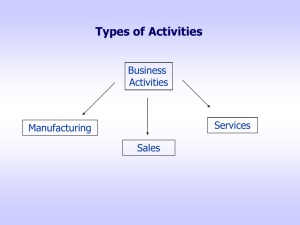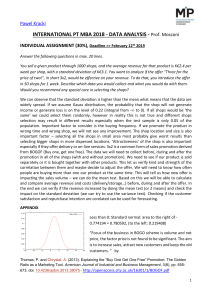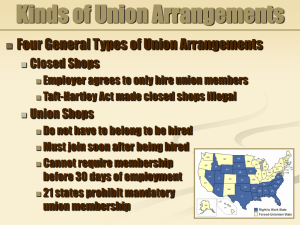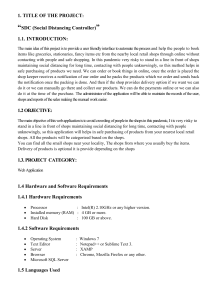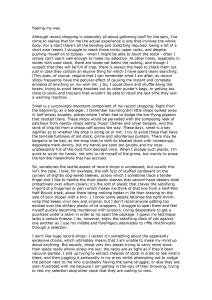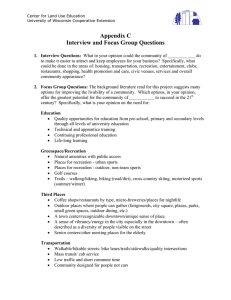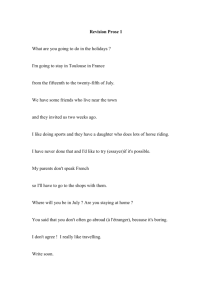Women and Children in World War One
advertisement
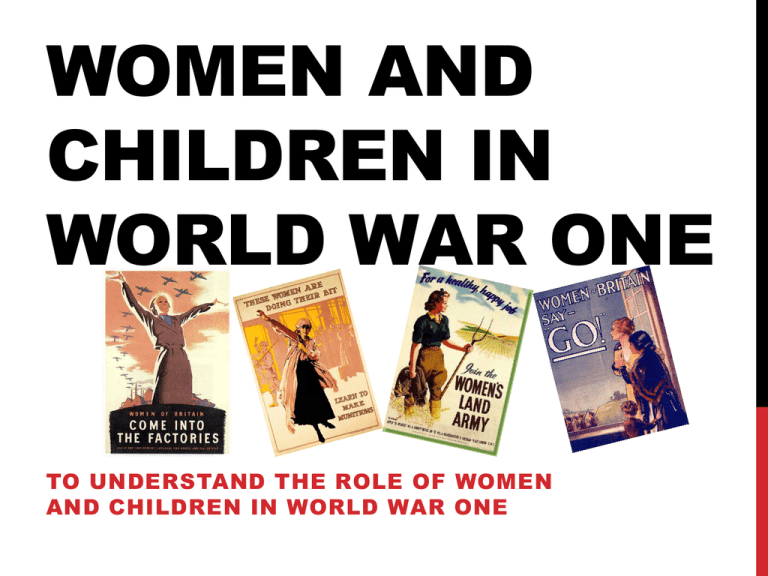
WOMEN AND CHILDREN IN WORLD WAR ONE TO UNDERSTAND THE ROLE OF WOMEN AND CHILDREN IN WORLD WAR ONE WOMEN BEFORE THE WAR Women had a set role in life before World War One. They were in charge of everything around the home. Their job was to make sure the household ran smoothly, whilst the men went out to work. Children would help out around the home but the main jobs were for the women. Jobs included: Making sure the house was fully clean. Cooking tea for the whole family and making sure tea was ready when the husband came home from work. Caring for and bringing up the children in the home. Cleaning and washing the clothes. WOMEN DURING WAR As the war started and more and more men signed up to fight for their “king and country”, the factories and offices needed more women to go to work to keep Britain running. More than 1 million women began to work between 1914 and 1918. WHAT JOBS DID WOMEN DO? Typical jobs these women took were: Working on the land Typists and office staff. Working in the factories to produce weapons, bullets and other war related items. Working for the government to keep the country running. Working in the shops owned by the men. These jobs were dangerous and many women were hurt. In January 1917 an explosives factory in East London exploded and killed 73 people, destroying hundreds of homes in the process. WHAT HAPPENED AFTER THE WAR! At the end of the war, these women had to go back to their old lives and many were unhappy about this. Why do you think they were not happy? WHAT DID CHILDREN DO DURING THE WAR? Everyone in war had to do their bit, even the children. They had an important role in supporting society in the war. The things they had to do include: Queuing for food in the shops – people could only have a certain amount of food so queues were long at shops. Helping their mothers around the home. WHAT JOBS COULD THEY DO? Organising flag days Children sold little flags and badges on the streets for extra money for the war. If people were seen wearing them it was a badge of honour to say they were supporting the war effort. Recycle, Reduce, Reuse Children helped to save materials for the war. They would collect anything that could be reused or recycled, including old pots and pans, rubber from wellington boots and tyres and even glass bottles. SCHOOL DURING THE WAR! School didn’t change a lot. Lessons were still as strict and teachers would punish naughty children with the cane. Growing your own vegetables in school became huge as children would plant vegetable patches. YOUR TASK You are to write a diary of a woman or child who is helping out in the war. You need to include: 1. Details of what they are doing to help the war. 2. Information about the war and why you need to help. 3. Information about what helping will do for the country.
